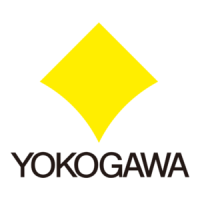1. The Need for Upgrade
1-3
TI 33K01B10-50E
1.2 Following to the Change
It is often the case that technology not established at the introduction of an existing system
comesintopracticelateranditsapplicationtoplantcontrolsignicantlyimprovesplantefciency.
To remain competitive in a boarder-less global market, it is necessary for businesses to follow the
innovation speed of computer technology, because technology becomes obsolete as soon as it is
introduced.
Production sites are required to be hot-linked with the corporate decision-making systems to
facilitate the swift incorporation of market changes into production. This necessitates production
systems to be linked with the plant information management system (PIMS) and corporate
decision-making systems such as the enterprise resource planning (ERP) and manufacturing
executionsystem(MES),andthelinkstobesoexibleandagiletoallowunparalleledswift
responses to market changes. In addition, to increase the competitiveness of each user’s
enterprise there is demand for production systems to implement advanced control to improve
efciencyofsteady-stateoperations,advancedoperationsupportfunctionstoimproveefciency
ofnon-steady-stateoperations,andplantresourcemanagement(PRM)toimproveefciencyof
facility management.
1.3 Increasing System Maintenance Cost
Recently, the technologies for DCSs’ basic parts such as CPUs, ICs, and hard disk drives are
innovating at incredibly fast speeds. Parts manufacturers consequently discontinue old products
quicker than ever while catching up with the technology innovations, reviewing the sales
strategies and parts productions, and putting their energies into manufacturing their workhorses.
TIP
Dividing the parts into groups corresponding to the individual DCS components using them and analyzing
suppliers discontinuation trends, revealed that the revision-and-discontinuation cycles and supply periods are
shortforthepartsusedinhumaninterfacessuchasharddiskdrives,oppydiskdrives,andCPUs.Incontrast,
parts used in I/O show longer revision-and-discontinuation cycles and supply periods.
To achieve long-term steady operation of its DCSs, regardless of the ever-shortened supplying
periods of basic parts, Yokogawa maintains supply of spare parts by implementing various
measures including redesign with substitute parts and long-term stocks. Despite these efforts,
price revisions for spare parts are becoming inevitable because the costs of long-term spare
partssupplytendtoincreasesignicantlyduetotheoverwhelmingamountofdiscontinuationsby
parts suppliers.
The maintenance cost for a system demonstrates a propensity to escalate because of increases
in parts failure rates due to deterioration over time and in prices of spare parts.
Mar. 27, 2015-00

